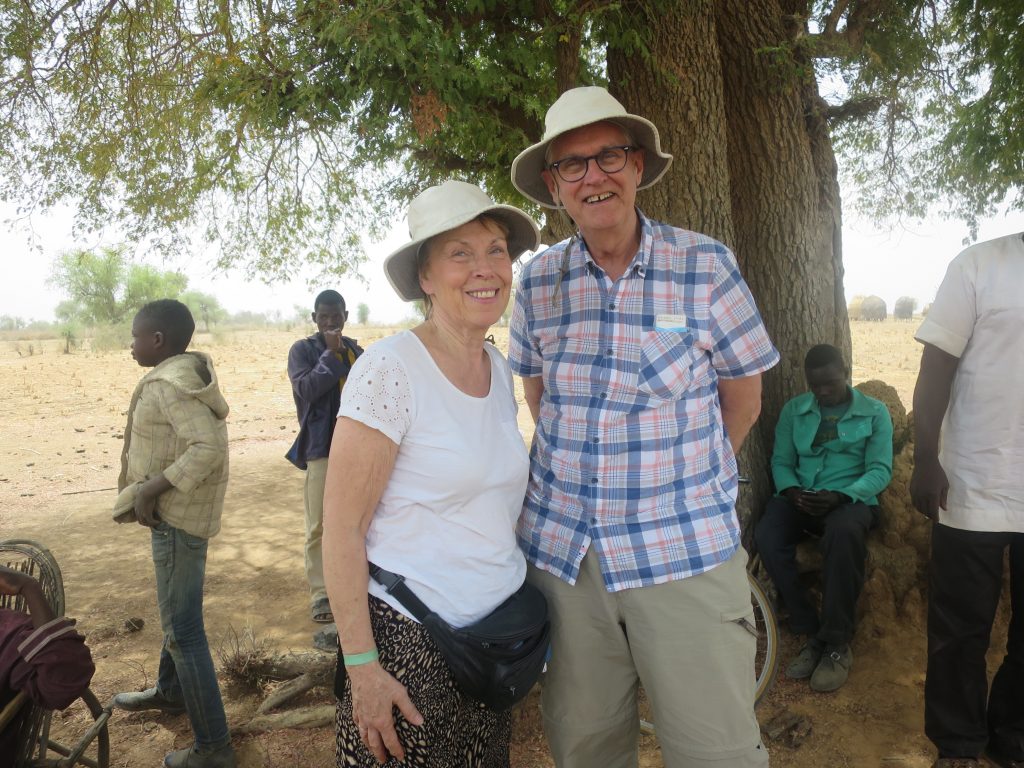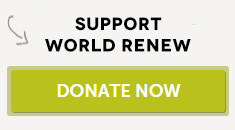This week, as enumerators were going through 26 different villages to conduct the needs assessment survey, we convened some focus groups, met with various government officials, consulted other NGOs, and pursued available information that will help identify the seriousness of the food shortage for families in this area.
We were able to access reports from the Department of Agriculture that identify, by village, the extent to which last season’s harvest fell short of meeting the local populations’ food needs, lists gathered by our partner last fall that identify those farmers who allowed their animals to graze on their crop fields because there was no crop there to harvest and reports that capture rainfall data.

During one of our village visits, because of our curiosity to examine a granary up close, we had an impromptu chat with a local farmer who showed us his granaries. We climbed up and looked in the first one. It was completely empty as were his other five granaries. He indicated that these granaries had been empty for several months already – normally there should be sufficient harvest in these granaries to provide for the family until the next harvest, starting in September. In order to feed his family, he had taken a job making fences for people who want to do gardening. Last year he had twelve sheep but now has only four left. He fears he will have to sell the last ones soon to buy the food needed to sustain his family.

Farmer’s family
Another indicator of the extent of the hunger in this area is in the story of the Baobab trees. The baobab tree is known as the tree of life, and with good reason. It can provide shelter, clothing, food, and water for the animal and human inhabitants of the regions where it grows. The baobab tree has adapted to the savannah region of Africa by only producing leaves during the wet season. When leaves do grow, they are in tiny finger-like clusters.
Especially when crop yields are low, families collect baobab leaves and allow them to dry. These leaves can be used in a similar way to spinach, or as the base for a sauce that accompanies millet or rice. To gather these leaves to eat, sell, or trade for other food, women and children climb the trees to pick them. While driving one day, our local manager told us that the locals are climbing dangerously high in these trees to reach the untouched sprigs, leaving the trees almost bare until new growth comes in.

Baobab tree
A very interesting way to gather information is to have focus group discussions in the villages. We did three this week in different areas to get a fair representation. To include diversity, each of the groups had two to three different ethnic groups represented. Through interpreters, we learned a lot about the different roles each gender plays in the agricultural and household duties. We learned that women need permission to leave their concession (family compound) or village, and that the men do most of the market purchases. We also learned that decisions about how money is to be spent are made together, and that the field work, in preparation for and during the rainy season, is done as a team by both men, women, and children.

Focus group
One of the challenges in conducting a needs assessment is to gather helpful information without raising expectations that a project is guaranteed. With this caution, we asked the focus groups for input about which foods they preferred and which seeds would be the most valued. The groups had lively discussions around the criteria that would identify the most vulnerable community members that should receive humanitarian assistance. It was amazing to hear them say with assurance that a community committee would be able to fairly identify the most vulnerable without bias. Since the villages are so small, there is a natural accountability in these types of decisions since everyone would know who was selected as a beneficiary.

After our meeting, a meal, prepared by some villagers, arrived and according to their custom, the men (and us as visitors) ate first and then food was served to the women and children. The food was shared on large plastic trays (looked like the lids from large plastic garbage pails). Observing the women eating their meal, we noted that they dipped into the noodles, taking small handfuls at a time, sharing the food with each other and their many children. It appeared that everyone received a fair portion. Water was shared by taking sips from what looked like a communal plastic teapot and from small plastic water-filled bags.

Sharing food
As we write this, the completed surveys are arriving from the villages. The data is now being entered by five university students here in the capital. Many people in Niger are not familiar with tablets or smartphones, so it has been a challenge finding people to input the data. For upcoming surveys we are hoping they will be able to teach the local people to use the tablets so that the surveys can be entered directly onto the tablet. Next week we hope to be able to analyze the results of all of the information gathered. Stay tuned!

Data entry team




Thanks for the update. Praying that God will give you wisdom and insight as you complete the needs assessment report!
Wow. It all sounds soooo challenging. We pray for you and your team every day. Hard for us to understand desparate need for basics. ..especially food. Blessings to all,of you. Love Bob and Jane
Annie and Harry, there is a lot of good in the world, and the two of you keep adding to it !
Hi Harry and Annie, thank you for the latest update. It must be quite difficult for the locals to feed their large families. Speaking of families, June sister Wendy and her husband, Manuel, joined us for Easter dinner. June and Wendy made the meal consisting of ham, a salad and cheesy mashed potatoes. It’s unfortunate that the Nigerians must go to such great lengths to be able to feed their families. June and I are thinking about you and the obstacles that you face in helping the Nigerians. Our thoughts and prayers are with you and we are confident that you will overcome the numerous obstacles to set them on their way to a much more prosperous life.
Talk to you soon.
Gene and June
So much detail to “harvest” in order to provide sustenance to these poor people. Having only four sheep left from a flock of twelve must be heart breaking.
It really makes one think about the bounty e have here in North America. Also makes one wonder about the fairness of it all. We take so much for granted… Thank you for all you sounder difficult circumstances.
Keeping you and your project before the throne of the Almighty.
God Bless you in your challenging task! Thank you for the update.
How wonderful to be able to trust the people to be fair.
Ever in our prayers!
Wow, it seems so obvious looking at this from a Western view point that all these people have demonstrated that they are vulnerable whether they have experience crop failure or not. Like Margaret said, it seems so unfair that we have so much and they have so little. May God continue to bless your work, Annie and Harry. You remain in our prayers.
Harry & Annie,
So good to hear from you, we don’t know what to add to all the comments.
We continue to pray for you, and trust that the Lord will guide you.
Love from both of us
Hi Harry and Annie.
Thank you for keeping us informed of all your good work. Jim and I continue to pray for for you.
Love you both
Jim and Ann xoxo
Always an interesting and informative read. Thanks for sharing your experience with us.
In our prayers
Ron and Marion
Thanks for sharing, we continue to pray for you both and the country of Niger. Your writing continues to teach and help us grow compassion for those you meet. Thank you for this gift.
It is such difficult work you have to do. We thank God for your willingness to serve. We’ll pray for you, your work and for Niger.
Thanks for the update, Harry & Annie!
I’ve just been reading The Little Prince, so the pictures and stories of the baobab tree gave me a little smile. Of course, the little prince finds them the bane of his existence on his little planet, while here it seems they are a last resort to people desperate for food to eat. As others have said above, we certainly overlook our abundance!
I appreciate hearing about your continued work and will keep praying for you!
Much love.
Oh my what a lot of info gathering, and community meetings to attend in order to arrive at those most vulnerable. You and your team will need the “wisdom of Solomon” to arrive at strategy that benefits the most needy in these communities. I thank God, you have people there to work along side of you. And am so very grateful to you for selflessly sharing your talents in this project. God give you all strength and wisdom in this project.
Wow, thats a lot of work to get done. Welldone. May God bless you both.
Hi Harry and Annie.
Thank you for the updates, may God be with you as you serve his people.
Hi Harry and Annie, I really enjoy reading your updates. Thanks so much for letting us share in your journey this way. The work must be very challenging and at the same time very rewarding. I pray for all the people there, that God will keep you safe, and that your work will be successful.